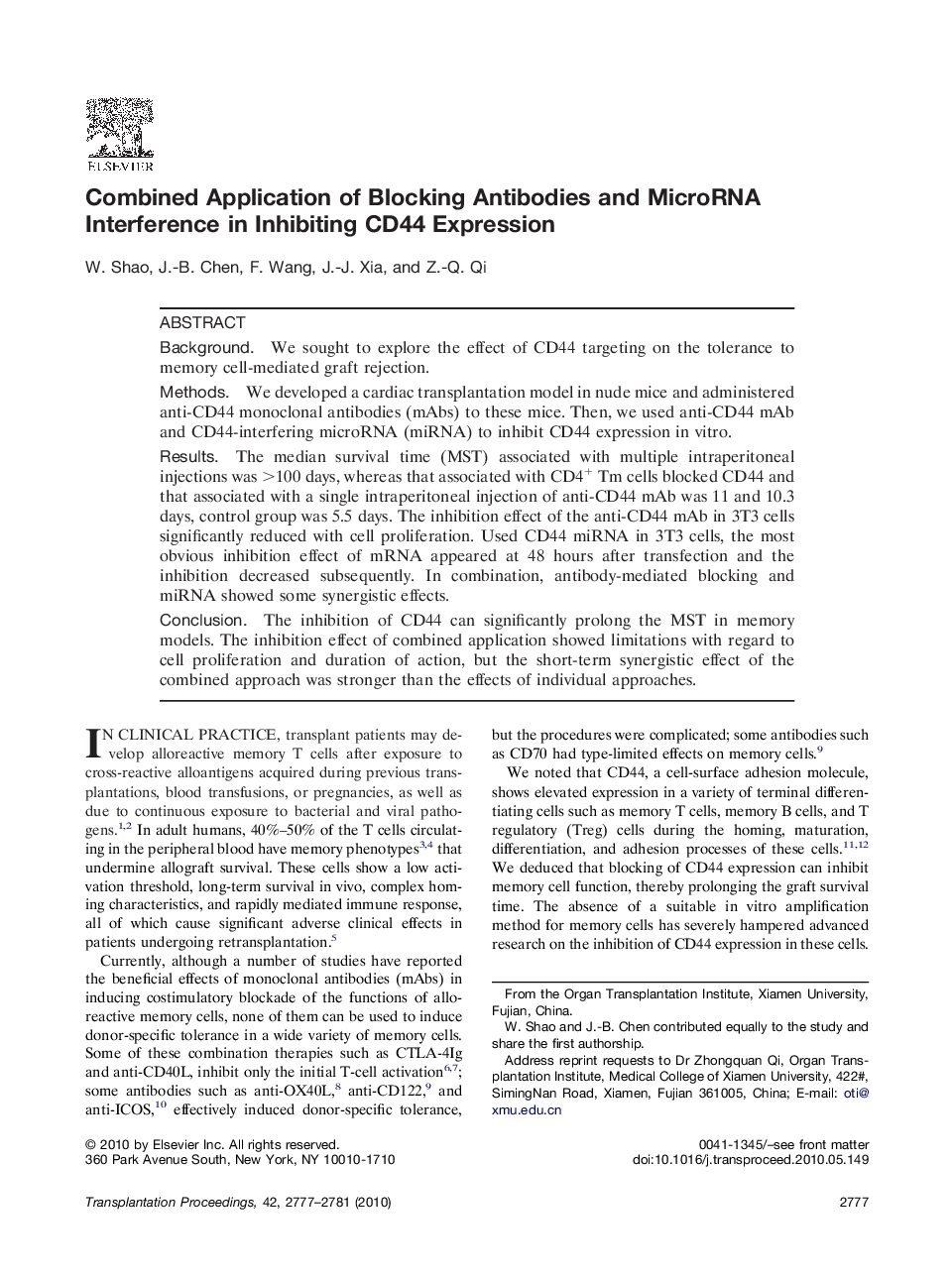| Article ID | Journal | Published Year | Pages | File Type |
|---|---|---|---|---|
| 4259479 | Transplantation Proceedings | 2010 | 5 Pages |
BackgroundWe sought to explore the effect of CD44 targeting on the tolerance to memory cell-mediated graft rejection.MethodsWe developed a cardiac transplantation model in nude mice and administered anti-CD44 monoclonal antibodies (mAbs) to these mice. Then, we used anti-CD44 mAb and CD44-interfering microRNA (miRNA) to inhibit CD44 expression in vitro.ResultsThe median survival time (MST) associated with multiple intraperitoneal injections was >100 days, whereas that associated with CD4+ Tm cells blocked CD44 and that associated with a single intraperitoneal injection of anti-CD44 mAb was 11 and 10.3 days, control group was 5.5 days. The inhibition effect of the anti-CD44 mAb in 3T3 cells significantly reduced with cell proliferation. Used CD44 miRNA in 3T3 cells, the most obvious inhibition effect of mRNA appeared at 48 hours after transfection and the inhibition decreased subsequently. In combination, antibody-mediated blocking and miRNA showed some synergistic effects.ConclusionThe inhibition of CD44 can significantly prolong the MST in memory models. The inhibition effect of combined application showed limitations with regard to cell proliferation and duration of action, but the short-term synergistic effect of the combined approach was stronger than the effects of individual approaches.
